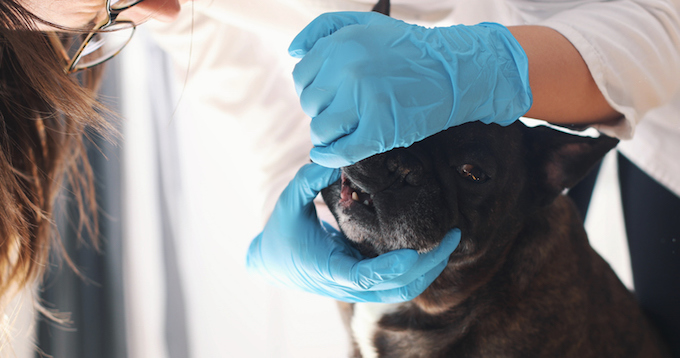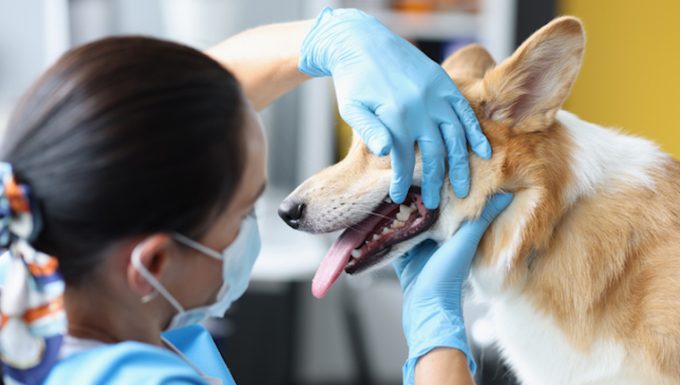Maxillary and mandibular fractures in dogs happen when a dog’s upper or lower jaw bone breaks. Trauma is usually the cause.
Technically, a maxillary fracture involves the upper jaw. A mandibular fracture involves the lower jaw.
If you see the signs of the condition in your dog, then get to a veterinarian for a proper diagnosis and treatment.
Here’s what you should know about the symptoms, causes, and treatments for the condition.
Symptoms of Maxillary and Mandibular Fractures in Dogs
The condition produces a wide range of symptoms. The symptoms vary depending on the extent and location of the injury.
In general, some of the most common symptoms include:
- Not being able to open the jaw
- Deformed parts of the face
- Teeth being fractured
- Nose bleed
- Mouth bleed
Causes of Maxillary and Mandibular Fractures in Dogs

The cause of the condition is usually a physical trauma to the face. However, certain other factors can increase the likelihood of a dog suffering from the condition. Some of those factors include:
- Metabolic issues
- Hereditary factors
- Periodontal disease
Treatments for Maxillary and Mandibular Fractures in Dogs
Firstly, your vet will ask about your dog’s symptoms and medical history. Secondly, your vet will ask about any recent circumstances where your dog could have suffered a trauma.
Thirdly, a full physical examination will be carried out. Blood and urine tests will be ordered.
Finally, X-rays can be used to assess the extent of the condition.
Treatment usually involves surgery. This is to fix and correct the jaw.
Additionally, pain medication and antibiotics will be prescribed. As always, if your vet prescribes your dog any medicine, it’s important to stick to the precise dose and frequency instructions. Also, complete the full course of medicine.
Subsequent to treatment, it’s vital to keep up regular vet visits. This is so that your dog’s recovery can be monitored. Follow up X-rays are frequently part of this process.
Have you ever cared for a dog who suffered from this condition? How did your vet help your dog recover? Let us know in the comments section below.








